Arts & Culture
-

Live fast, die young, inspire Shakespeare
Stephen Greenblatt finds a tragic strain in the life and work of Christopher Marlowe
-

Steve McQueen could lecture you, but he’s got other plans
‘I think the audience needs more, and I feel I need to give more,’ says award-winning filmmaker — presenter of this year’s Norton talks
-

Marking 100 years of Norton Lectures
Panelists reflect on ‘incredible value’ of annual series as ‘megaphone’ for artists and scholars
-
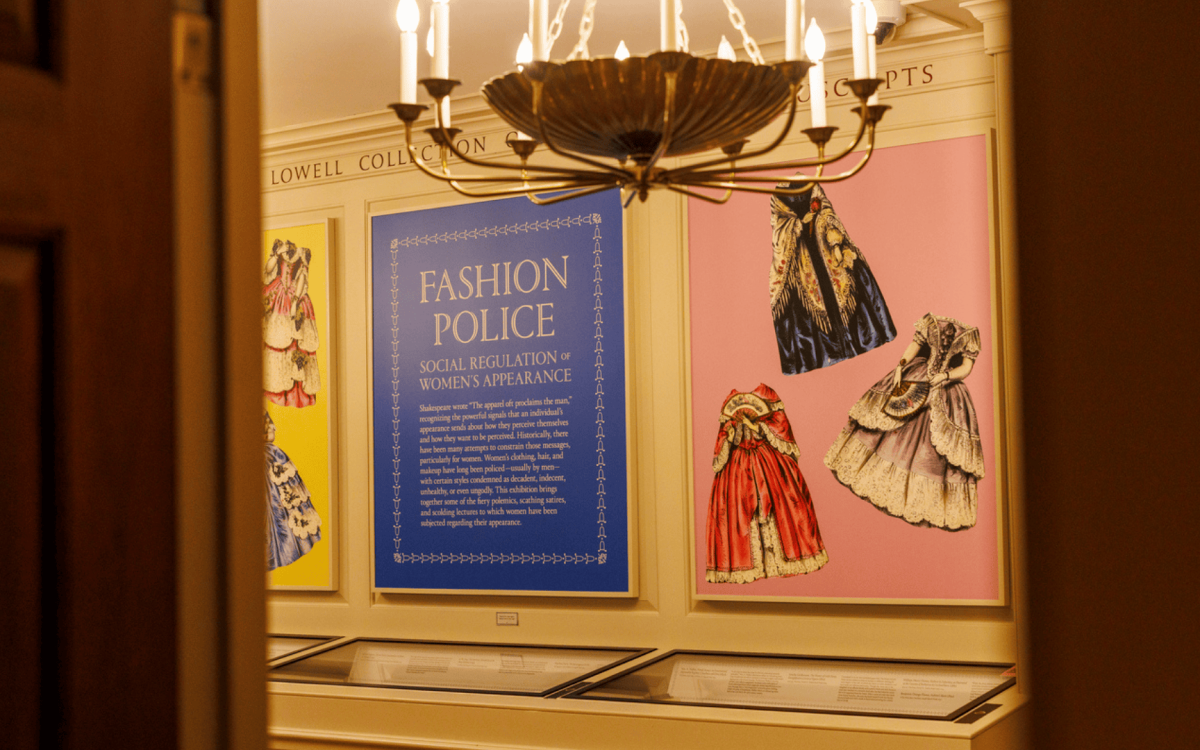
How fashion police have been walking beat for centuries
Houghton Library exhibit highlights the policing of women’s fashion since the 17th century.
-
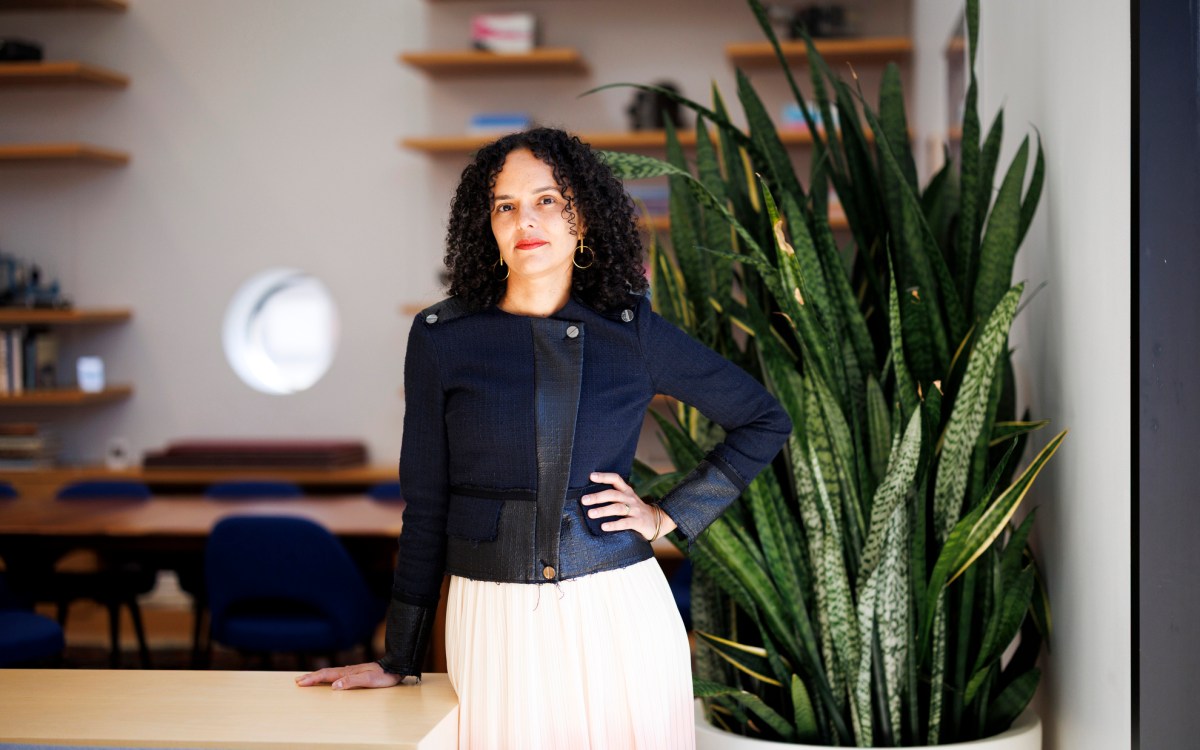
Seeing what you see
New faculty Cécile Fromont is a visual problem solver
-
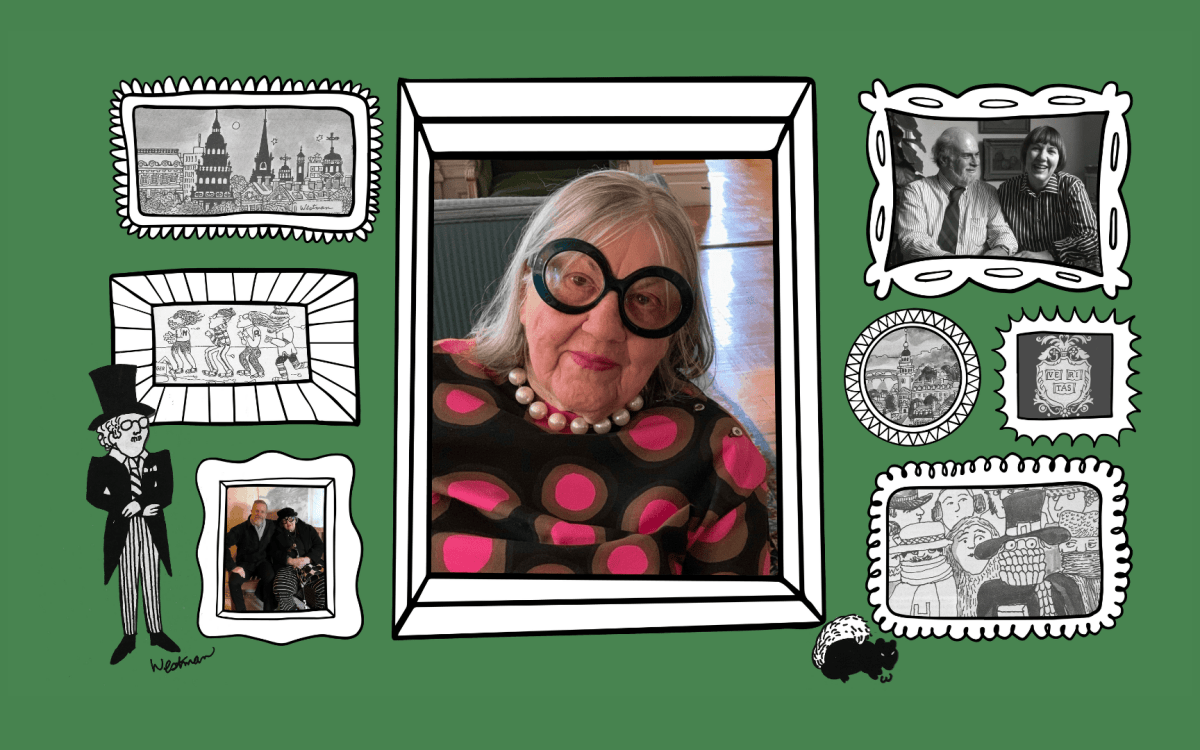
Her Cambridge iconography made her a local icon
Before New Yorker covers, Barbara Westman created colorful visions of campus as Gazette’s first staff artist
-
The Origins of Canadian and American Political Differences
Guns, government, same-sex marriage — the U.S. and Canada couldn’t be more dissimilar. Kaufman explores the history and culture of the two lands and asks why Canada is so close, yet so far away.
-
How Professors Think: Inside the Curious World of Academic Judgment
Lamont tells all in this behind-the-scenes work on the mysterious underpinnings of academia. Be in the room when the greatest thinkers meet behind closed doors and talk about how excellent excellence is.
-
Human Documents: Eight Photographers
Media maestro Robert Gardner presents this stunning array of photographs, or, “human documents,” which explore geography, culture, and our shared humanity through a universal visual language.
-
Up Close, part 2
In the fast pace of our daily lives we may overlook the details which, collectively, create a stunning backdrop for all that happens within the University. Hundreds of historic volumes stand as individual works of art inside the Houghton and Widener Libraries.
-
Johnson at 300
Harvard’s Houghton Library, home to a comprehensive collection related to 18th century English literature, sponsored a three-day international literary celebration of lexicographer, poet, essayist, and moralist Samuel Johnson, born 300 years ago this year. His work has inspired centuries of scholarship and generations of fervent ‘Johnsonians.’
-
‘The Donkey Show’ kicks off a first season for Diane Paulus
Harvard’s new American Repertory Theater director Diane Paulus ’88 takes a classic Shakespeare comedy for a spin on the disco floor with “The Donkey Show.”
-
Child psychiatrist pens her past
Psychiatrist Nancy Rappaport uncovers a relationship with the mother she scarcely knew in her powerful familial memoir. Infused with accounts of treating her own teenage patients, Rappaport plumbs the bond between parents and children while closing in on healing.
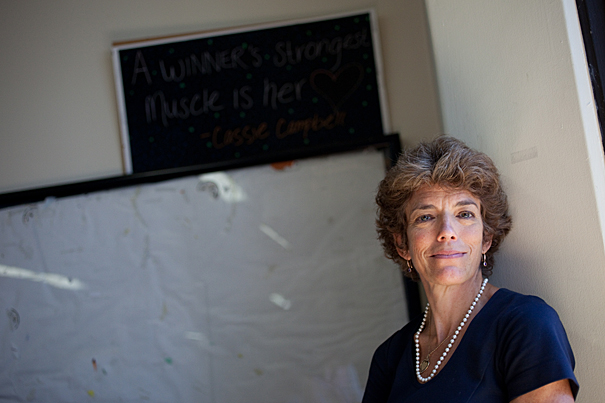
-
Helping others thrive
As the new executive director of the Harvard University Native American Program, Shelly Lowe plans to help Native American students utilize the resources that are available to them through the University.
-
Making music and keeping the faith
The father of two young children and an amateur musician, Matthew Myer Boulton, HDS associate professor of ministry studies, is investigating the spiritual dimension of human experience through the use of song with his newly formed band Butterflyfish.
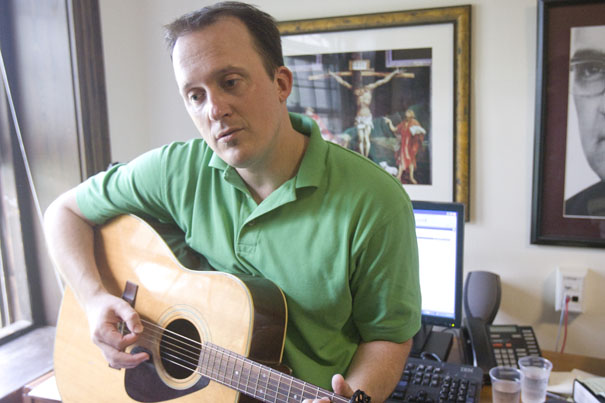
-
Nine Graduate Students Receive Loeb Fellowships
Harvard Divinity School (HDS) has announced nine recipients of John L. Loeb Fellowships for summer and term-time research in 2009.
-
Harvard-Yenching Institute selects 10 for 2009-10 scholarships
The Harvard-Yenching Institute has selected 10 students from major universities in Asia as fellowship recipients in its Doctoral Scholarship Program, Harvard-Yenching Institute and Regional Studies-East Asia Program, and training program in comparative literature at Harvard.
-
Finding the founding ideas
In 1788, Thomas Shippen of Philadelphia, a citizen of the world’s newest nation, visited the French royal court at Versailles. He was awed by its pomp, its riches, and – as he wrote – its “Oriental splendor.” But Shippen was also repulsed. He remarked on the arrogance and waste of royal life, and on the fact that it required great suffering among France’s unrepresented poor.
-
Designer dreams
Callum Gilbert was an unemployed bricklayer and high school dropout when in 2006 he was attacked outside a hip-hop concert in his native Liverpool, England. This summer, Gilbert – now 22 – is studying at Harvard’s Graduate School of Design (GSD).
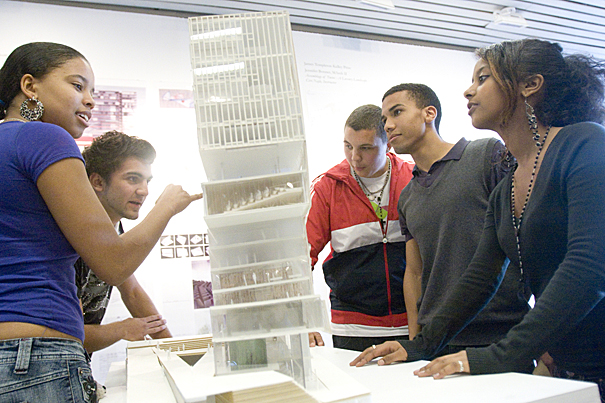
-
History on a small scale
On the second floor of Harvard’s Science Center is a temporary exhibit of 75 patent models from the 19th century, a time of prolific American invention that produced the revolver, zippers, trolley cars, and cash registers.
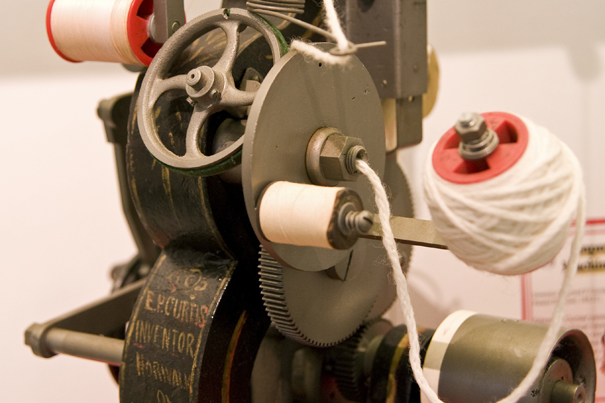
-
Impressions of women
More than ever, the Harvard Art Museum is making it easier for scholars and students to use its permanent collection (more than 250,000 works) to shed light on a variety of disciplines.
-
Peabody Museum receives grant to preserve maps, plans, and drawings
The Peabody Museum of Archaeology and Ethnology has been awarded a $150,000 grant from the U.S. Institute of Museum and Library Services (IMLS).
-
Harvard Department of Music announces $226,000 in fellowships
The Music Department’s Oscar S. Schafer Award is given to students “who have demonstrated unusual ability and enthusiasm in their teaching of introductory courses, which are designed to lead students to a growing and lifelong love of music.” This year’s recipients are David Sullivan and Karola Obermüller.
-
Peabody awards photography fellowship
The Peabody Museum of Archaeology and Ethnology has recently announced Alessandra Sanguinetti as the recipient of the 2009 Robert Gardner Fellowship in Photography.
-
Seceding from the secessionists
Deep in Civil War Mississippi, where manicured plantations gave way to wild swampland and thick pine forests, a young white man named Newton Knight led a ragtag band of guerilla fighters against the Confederate Army. His story is one of personal bravery and unwillingness to adhere to the secessionist movement that all but surrounded him.
-
Two views of disparate cultures
Art historian Kellie Jones, the child of two writers, grew up in the 1960s and 1970s on Manhattan’s Lower East Side. It was a place of cultural ferment, creation, and comparative racial freedom. Jones is exploring new visual and literary ways to convey her personal history. Legal scholar Stacy Leeds, an expert in tribal law, once served on the Cherokee Supreme Court — the youngest ever to do so, and the only woman.
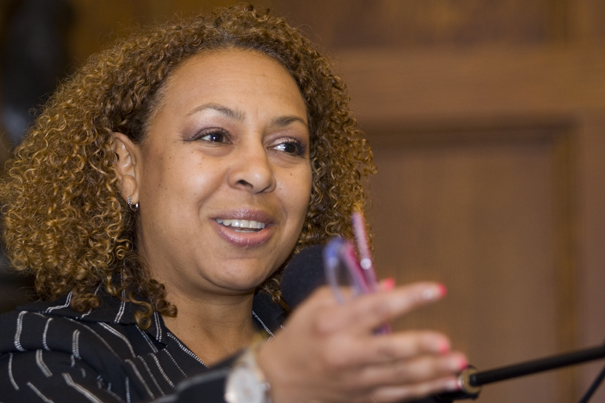
-
Sarah Messer’s surreal poetics
With long, sun-streaked tresses, Sarah Messer doesn’t strike one as a poetess whose work conjures American histories in bewitching, surrealist twists. But Messer’s poems navigate farther and farther from the familiar mainland into a world wholly her own.
-
Cortese new conductor of Harvard-Radcliffe Orchestra
Harvard’s Office for the Arts (OfA) and Music Department announced that Federico Cortese has been appointed conductor of the Harvard-Radcliffe Orchestra (HRO).
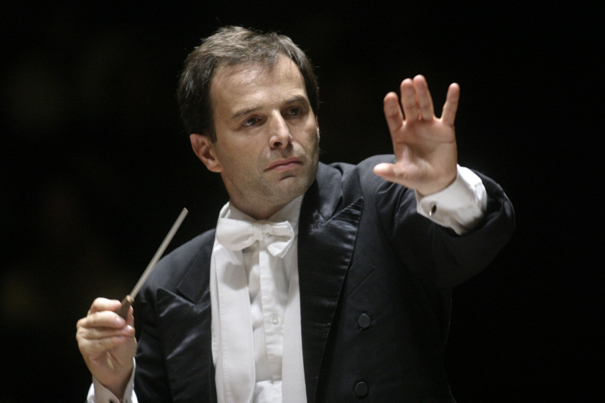
-
Libraries launch ‘Expeditions and Discoveries’
Harvard’s Open Collections Program has launched “Expeditions and Discoveries: Sponsored Exploration and Scientific Discovery in the Modern Age.” Through the new collection, Internet users can find thousands of maps, photographs, and published materials, along with field notes, letters, and unique manuscript materials on sponsored exploration and related scientific discoveries between 1626 and 1953.
-
How’d the Russians get the H-bomb?
Ever hear of Elugelab? Until Oct. 31, 1952, it was an island on Eniwetok Atoll in the Pacific Ocean. Then it vanished, consumed in the fireball of the world’s first hydrogen bomb.
-
The Sacco-Vanzetti Affair
The infamous Massachusetts controversy on the conviction and execution of Italian anarchists Nicola Sacco and Bartolomeo Vanzetti gets fresh eyes as Moshik Temkin examines how the polarizing murder case led to contemporary repercussions.
-
On the road in the fifth century: Visions of heaven, hell
During the fifth century, travelers began to depart China more frequently than ever before, venturing outward from medieval cities to explore lands in Central and South Asia. A range of individuals eagerly took to the road, writing extensively about their journeys and returning home with elaborate accounts.
-
The Arsenale
“Provocative” — one of the most-used words to describe art — may be an understatement for “The Arsenale,” the thesis exhibition for students in the Department of Visual and Environmental Studies, held at the Carpenter Center.
-
Not so elementary, my dear Watson
For more than a century, Sherlock Holmes, the most famous creation of Sir Arthur Conan Doyle, has captivated mystery fans, literary scholars, and researchers of virtually every stripe. But, as dozens of Doyle scholars and Sherlockians showed during a recent three-day symposium at Harvard, the Holmes stories represent only a small part of Doyle’s contribution to literature.
-
REISCHAUER INSTITUTE SEEKS PAPERS
The Edwin O. Reischauer Institute of Japanese Studies is now accepting submissions for its 2009 Noma-Reischauer Prizes in Japanese Studies, given to the undergraduate and graduate students with the best essays on Japan-related topics. The submission deadline is June 30, and $3,000 will be awarded for the best graduate student essay and $2,000 for the best undergraduate student essay.
-
FAS launches budget Web site
The Faculty of Arts and Sciences (FAS) has created a new Web site to provide faculty, staff, and students with up-to-date information on cost-saving measures.


